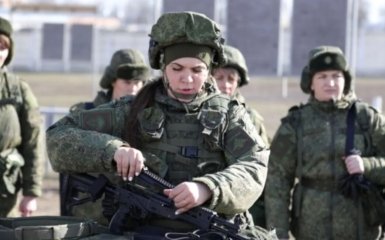At the end of May, Russia released a group of women from prisons to participate in combat operations in Ukraine. This may indicate a new stage in the Kremlin's use of war criminals.
Points of attention
- Russia is recruiting women from prisons to participate in hostilities against Ukraine.
- According to The New York Times, military recruiters have taken several women from Russian prisons, offering contracts to serve as snipers, combat medics and frontline radio operators.
- The Russian government is turning to non-standard recruitment schemes, trying to attract volunteers from the margins of society and avoid unpopular conscription.
- Financial incentives played a big role in persuading Russians to go to the front, raising military salaries to record levels.
What is known about the recruitment of Russian women from prisons to the army
This is reported by The New York Times concerning ex-prisoners who maintain contact with those who are still in prison. According to them, military recruiters took several women from a prison near St. Petersburg. It is unclear whether their firing is an isolated incident, a pilot program or the start of a more significant wave of recruitment.
As of the beginning of 2022, about 30,000 women were serving sentences in Russian prisons. In the fall of 2023, recruiters began a tour of prisons for women throughout the European part of Russia. However, until now, the convicted women who joined the military service remained imprisoned without official explanations.
The recruitment of female convicts comes at a time when the Russian government is resorting to increasingly unconventional schemes to attract volunteers from the fringes of Russian society in an effort to avoid yet another unpopular draft. In addition to prisoners, these recruitment schemes are aimed at debtors, accused of crimes and foreigners, the journalists say.
It is not yet known what duties the conscripts will perform at the front. Recruiters offered prisoners contracts to serve as snipers, combat medics, and front-line radio operators for one year. At that time, only about 40 of the colony's 400 prisoners agreed.
They were offered a pardon and a salary of about $2,000 monthly, about ten times the minimum wage in Russia.
As the former prisoners explained, the women decided to go to the front, in particular, because of the harsh conditions in Russian prisons. They were forced to remain silent at all times and spent up to 12 hours a day performing mandatory work in the prison's sawmill, even in sub-zero temperatures in winter.
Mobilisation in Russia
According to the Financial Times, a new wave of "partial mobilisation" may be announced in Russia by the end of 2024—mobilisation of 2025.
Despite heavy losses, the army of occupation is now 15% larger than when full-scale war began. Financial incentives that raised military salaries to unprecedented levels played the biggest role in persuading Russians to go to war.
The Institute for the Study of War estimated that replenishing the occupying army with recruits would not allow the Russian Federation to conduct large-scale offensive operations in the summer in several directions. New reserves would not be able to act as penetration forces of the first or second echelons.




